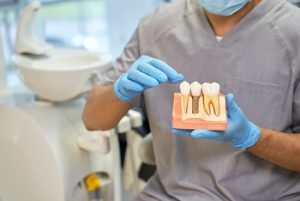Many patients weigh their options locally and abroad when considering dental implant procedures. While dental implants in the Philippines may seem attractive due to lower initial costs, it’s essential to look beyond price tags and delve into factors that affect the long-term success of the treatment.
Australia shines as a leading location for dental implants, offering unparalleled quality, advanced technology, and stringent standards. Here, we’ll explore why seeking dental implants in Australia is advantageous compared to overseas options like the Philippines.
The Appeal of Dental Implants in the Philippines
The Philippines has distinguished itself as a popular destination for dental tourism. Dental clinics advertise affordable dental implants that appeal to those looking for budget-friendly options. The cost of dental implants in the Philippines is significantly lower, drawing dental tourists worldwide.
However, while affordability can be enticing, other factors should be considered when choosing a dental implant treatment. Skilled professionals may perform dental implants in the Philippines, but there are aspects of implant dentistry that can make or break the success of your procedure.
What is Dental Tourism?

Patients need to consider factors such as the quality of care, potential communication barriers, and the availability of follow-up treatment before deciding to seek dental procedures abroad.
What is a Dental Implant?
A dental implant consists of a titanium screw that is surgically fixed into the jawbone to function as an artificial tooth root. This post supports a dental crown, bridge, or denture, creating a sturdy and natural-looking tooth replacement.
Dental implants are recommended for people with one or more missing teeth and seek a lasting solution that resembles the function and appearance of natural teeth.
Unlike traditional dentures or bridges, dental implants offer superior stability, preserve bone density, and promote overall oral health, making them the top choice for teeth replacement.
Dental Implants: Cost vs. Quality
Dental implant costs in the Philippines can indeed be much lower than in Australia. The starting price of a single dental implant in the Philippines is around 1,500 AUD, which may seem highly appealing. For a single dental implant in Australia, it is approximately 3,000 AUD.
While the price difference is significant, it is important to consider that the higher cost in Australia reflects the superior quality, comprehensive care, and stringent safety standards of the treatment.
The comprehensive dental implant journey involves more than just implant placement; it includes the initial consultation, implant surgery, bone grafting (if necessary), abutment placement, and dental crowns.
While the Philippines may offer cheaper upfront prices, Australian dental practices ensure comprehensive care with no hidden fees. While the overall dental implant cost in Australia might be higher initially, it covers complete, transparent services and prioritises your overall oral health.
Why Choose Dental Implants in Australia?
Opting for dental implants is a huge decision, and the location where you choose to have the procedure can greatly impact the outcome. Thanks to its advanced infrastructure, skilled dental professionals, and comprehensive treatment standards, Australia has become a preferred choice for patients seeking the highest quality dental care.
Here, we break down the reasons why Australia stands out as a leading spot for dental implants compared to other countries.
Higher Standards of Care
Australian dental clinics are governed by stringent regulations set by the Australian Dental Association (ADA). This ensures that all surgical or invasive procedures, including dental implant surgery, are performed by appropriately qualified health practitioners.
In contrast, overseas dental implants, such as those offered in the Philippines, may not always adhere to the same rigorous standards.
Experienced Dental professionals
Australian clinics pride themselves on employing experienced dentists who undergo extensive training. These dental professionals use advanced imaging techniques, such as 3D scans and digital planning, to optimise each step of the dental implant procedure.
Dentists in Australia are also well-versed in complex cases that may require bone grafting or alternative tooth replacement options.
Cutting-Edge Technology
Implant dentistry in Australia benefits from advanced technology that ensures precise implant placement. The use of modern dental technology, such as computer-guided surgery and advanced imaging techniques, contributes to a higher success rate of dental implant procedures.
This level of precision minimises complications and enhances the healing period, reducing the risk of post-surgery issues.
In comparison, while many dental clinics in the Philippines offer modern facilities, they may not always match the depth of technological integration found in Australian clinics.
Comprehensive Treatment Plans
Australian dental practices focus on providing a complete treatment plan customised to fit each patient’s unique needs. This includes thorough initial consultations, customised treatment strategies, and detailed follow-up care.
Such comprehensive treatment plans help ensure that the dental implant journey is clear from start to finish, reducing the chances of unexpected issues.
Advanced Safety Protocols
Safety is a top priority in Australia, with dental practices adhering to strict infection control measures and protocols. This includes the use of high-quality sterilisation methods, safe handling of local anaesthesia, and adherence to industry best practices during surgical procedures.
This commitment to safety helps minimise risks and ensures the highest level of patient care.
Personalised Patient Care
Australian dental clinics are known for their warm and personalised approach to patient care. Dentists take the time to understand the patient’s medical history, preferences, and concerns, ensuring that every aspect of the procedure is customised for optimal comfort and results.
This patient-focused care fosters trust and confidence in the treatment process.
Focus on Long-Term Success
The long-term success of dental implants depends not only on the surgical procedure but also on post-treatment care and support. Australian clinics emphasise ongoing care, which includes follow-up visits, guidance on maintaining proper oral hygiene, and professional cleanings. This ensures that the implant remains secure and that the patient’s overall oral health is protected.
High-Quality Materials
Australian dental clinics use high-quality, durable materials for dental implants, ensuring that they function like natural teeth and last for years. These materials meet strict quality standards, which minimise the risk of post-operative complications like implant failure or allergic reactions. The use of premium materials contributes to better outcomes and patient satisfaction.
Peace of Mind with Dental Insurance
Another major advantage of getting dental implants in Australia is the availability of dental insurance that can cover part of the costs. While the initial consultation and treatment might be higher in price, having dental insurance can significantly reduce out-of-pocket expenses.
Comprehensive Aftercare
One major advantage of seeking dental implants in Australia is the comprehensive aftercare provided. The dental implant process is not complete after implant placement. The healing period is critical, and Australian dental clinics prioritise follow-up care to monitor the surgical site and ensure proper oral hygiene is maintained. This proactive approach prevents problems such as gum disease, which can jeopardise the success of the implant.
Safety and Peace of Mind
Dental procedures, especially invasive ones like implant surgery, come with inherent risks. In Australia, dental practices follow stringent safety protocols to mitigate these risks. The use of local anaesthesia is carefully managed, and experienced dentists adhere to strict standards during the surgical procedure. Patients can rest assured knowing that their treatment is being performed by an appropriately qualified health practitioner.
In contrast, opting for overseas dental implants, such as those in the Philippines, may mean compromising on these safety standards. Dental tourists often face challenges in ensuring that the dental clinic meets the quality assurance standards they are accustomed to in their home country.
The True Cost of Dental Implants
While the initial cost of dental implants in the Philippines may be tempting, it’s crucial to consider the potential hidden costs. Elective overseas dental treatment carries risks, including additional expenses if complications arise.
Follow-up visits, unexpected complications, or corrective treatments can significantly increase the total cost of what initially appeared to be an affordable dental implant cost.
Potential Risks of Overseas Dental Implants

In cases where issues arise post-surgery, returning to the Philippines for corrective treatments may not be feasible, adding further costs and stress. For many patients, these hidden factors outweigh the initial savings on affordable dental implants abroad.
Here are some detailed points to keep in mind:
Variable Quality Standards
Overseas dental clinics may not adhere to the same stringent quality and safety standards found in Australia. This can lead to varying outcomes in implant placement and boost the risk of complications such as infections, improper healing, or implant failure.
Hidden Expenses
While the initial cost may seem lower, unforeseen expenses can arise:
- Follow-Up Treatments: If complications occur, additional follow-up treatments may be needed. Returning to the overseas clinic for corrections can be costly and impractical.
- Corrective Procedures: Issues like improper implant placement might require corrective surgeries, which are often more expensive than the original procedure.
- Travel Costs: Travel and accommodation expenses for follow-up visits or corrective treatments can add up, making the overall cost much higher than initially anticipated.
- Emergency Care: If problems arise shortly after returning home, seeking emergency dental care in Australia can result in significant out-of-pocket expenses.
Lack of Continuity of Care
Proper aftercare is critical for the long-term success of dental implants. Overseas dental clinics may not provide the same level of follow-up care that Australian clinics offer, leading to potential issues such as gum disease or implant loosening over time.
Communication Barriers
Language differences and cultural variances can affect the clarity of communication between patient and dentist. Misunderstandings about the procedure, aftercare, or risks can result in complications and dissatisfaction with the results.
Limited Legal Recourse
In the event of a poorly performed procedure, patients may have limited options for legal recourse in a foreign country.
From Consultation to Crown: The Journey of a Dental Implant in Australia
Understanding the step-by-step process of getting a dental implant can help patients make informed decisions and feel more confident about their treatment plans. Being aware of what each stage entails ensures that you know what to expect, leading to a smoother and more comfortable experience.
Australia’s structured approach, combined with advanced dental practices, provides clarity and reassurance for anyone considering this procedure.
Here’s the step-by-step dental implant procedure in Australia in points:
- Initial Consultation: The dentist assesses your oral health, discusses treatment options, and performs advanced imaging like 3D scans to create a personalised treatment plan.
- Surgical Implant Placement: A titanium post is inserted into the jawbone under local anaesthesia to serve as the artificial tooth root.
- Healing Period (Osseointegration): The implant integrates with the jawbone over a few months to form a strong foundation.
- Abutment Placement: A connector piece (abutment) is attached to the implant once healing is complete.
- Custom-Made Crown Attachment: A custom crown is placed on the abutment, completing the tooth replacement for a natural look and function.
- Follow-Up Care: Ongoing check-ups and guidance to ensure the implant’s long-term success and maintain oral health.
Frequently Asked Questions
Before diving into frequently asked questions about dental implant procedures, it’s important to understand the key aspects involved in the process.
These FAQs will help clarify the procedure, recovery, and maintenance, ensuring you have the information needed for informed decision-making.
What is a dental implant, and how does it work?
A dental implant is a titanium post embedded in the jawbone to serve as an artificial tooth root, supporting crowns, bridges, or dentures. It mimics natural teeth in both function and appearance.
Who is an eligible candidate for dental implant surgery?
Individuals with one or more missing teeth, sufficient bone density, and adequate overall oral health are ideal candidates. A consultation with a dentist is crucial to determine eligibility.
What does the dental implant procedure involve?
The process typically includes an initial consultation, implant placement surgery, a healing period for osseointegration, abutment placement, and finally, the attachment of the artificial tooth.
How long does it take to recover from dental implant surgery?
Initial recovery can take a few days to a week, while complete healing for osseointegration may take 3 to 6 months. During this time, patients should follow their dentist’s aftercare instructions.
Is dental implant surgery painful?
The procedure itself is carried out under local anaesthesia so patients are comfortable. Mild discomfort may occur during recovery, which can be managed with pain relievers.
What are the possible risks associated with dental implants?
Risks include infection, implant failure, nerve damage, and sinus issues. Choosing an experienced dentist and adhering to proper aftercare reduces these risks.
How should I care for my dental implants?
Dental implants should be maintained with regular brushing, flossing, and routine dental check-ups. Proper oral hygiene is crucial for long-term success.
How long do dental implants last?
With proper care, dental implants can last 15-25 years or longer. Factors like oral hygiene, lifestyle habits, and regular check-ups impact their longevity.
Can dental implants fail, and why?
Yes, implants can fail due to poor osseointegration, infection, or insufficient bone support. Smoking and poor oral hygiene elevate the risk of failure.
What can I eat after dental implant surgery?
During the initial healing period, it is best to eat soft foods like soups, smoothies, and mashed vegetables. Your dentist will provide detailed dietary recommendations to follow during recovery.
The Bottom Line: Why Australia is Worth It

Investing in high-quality dental care ensures better results and a smoother experience, providing peace of mind and lasting oral health benefits. For those seeking a permanent solution for missing teeth that prioritises safety, quality, and long-term success, Australia stands as the superior choice. For more information or to schedule a consultation, contact Infinity Dental Care at (02) 9159 6237.
Note: Any surgical or invasive procedure carries risks. Before proceeding, you should seek a second opinion from an appropriately qualified health practitioner.
References
Cleveland Clinic. (n.d.). Dental implants. https://my.clevelandclinic.org/health/treatments/10903-dental-implants
Colgate. (n.d.). What is dental tourism?. https://www.colgate.com/en-us/oral-health/threats-to-dental-health/what-is-dental-tourism#
Healthline. (n.d.). Dental bone graft. https://www.healthline.com/health/dental-bone-graft
Perio-Implant Advisory. (n.d.). Dental implant failure: 3 common medical conditions that may affect success rates. https://www.perioimplantadvisory.com/clinical-tips/article/14073307/dental-implant-failure-3-common-medical-conditions-that-may-affect-success-rates
Forbes. (n.d.). How much dental implants cost. https://www.forbes.com/health/dental/how-much-dental-implants-cost/

